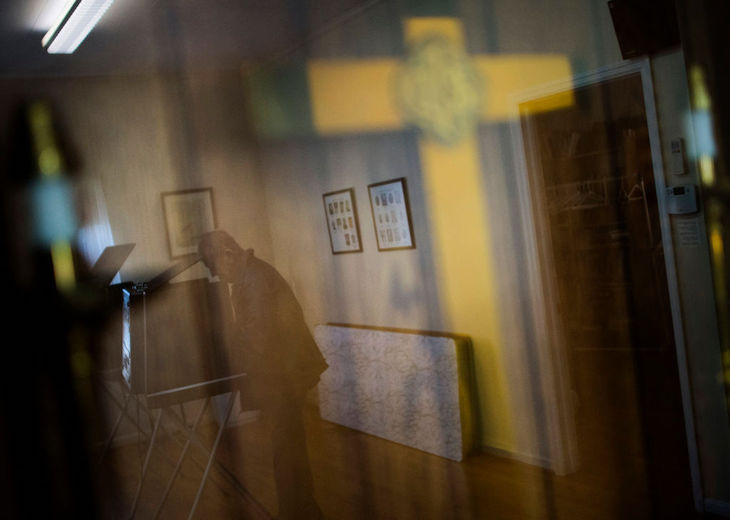The heydays of Christian influence over European politics may seem long gone. In the UK, after the most recent general election, four-tenths of all MPs took secular affirmations – up from less than a quarter in 2019 – while in Europe, parties with explicitly Christian foundations often seem embarrassed about their religious heritage as they tumble down the polls. Yet Christians have not stopped turning up for those parties. To play to its strengths and resolve its identity crisis, the centre-right should embrace its Christian inheritance.
By returning to this Christian inheritance, the centre-right can offer a vision that is compelling to all and re-establish its dominance
Even as the centre-right shies away from invoking its Christian credentials, it continues to rally Christian voters around its banner. In the UK, according to the most recent wave of the British Election Study, Christian voters were 33 per cent more likely to vote Conservative, compared to only 15 per cent of non-Christians. In Germany, too, churchgoing Christians are more than twice as likely to vote for the CDU/CSU Union than the non-religious. Even in the notoriously secular France, Catholics disproportionately turn up for the centre-right, with 19 per cent of Catholics – and 29 per cent of regular churchgoers – voting for the centre-right UDC at the 2022 legislative election, where the UDC received only 14 per cent of the overall vote.
This reflects a long-standing trend. A recent report by Bright Blue and the Konrad Adenauer Foundation argued that religiosity has been a core component of European centre-right’s history as they dominated European politics over the course of the twentieth century. Since 1949, the CDU held the chancellorship for 49 years – 26 more than its main rival, the SPD – during which time its policy platform was largely dictated by Catholic social thought, emphasising the value of family and the importance of social cohesion.
In Ireland, up until recent years, both Fianna Fáil and Fine Gael upheld a staunchly Catholic outlook on social policy as they maintained a stranglehold over Irish politics; their Catholicism waned only as their combined vote share began to tumble, but this abandonment of their roots has proven a poor recipe for electoral success. Even in the UK, where Christianity was not as explicit a part of Conservative Party philosophy, the Church of England is not described as ‘the Conservative Party at prayer’ without reason.
This is not merely because Christians vote right-wing. A 2023 paper titled From the Death of God to the Rise of Hitler found that a key predictor for whether you joined the Nazi Party or not was whether you had a Christian first name. If your name was common on churches – think St George or St Martin in England – you were far less likely to do so. The values of the centre-right deeply reflect their Christian heritage, while far-right politics instead often offers a secularised version of religion; one where politics, rather than God, is the source of meaning, and the party takes on the role of the church.
For the centre-right to succeed in the future, it should play to its strengths and embrace its Christian inheritance. First, by doing so, it would be playing into a renewed uptick in church attendance and religiosity. Between 2018 and 2024, church attendance in the UK has increased by 50 per cent, including by 300 per cent among the 18-to-24s. In France, as of 2025, the annual number of baptisms is the highest since records began 20 years ago.
But second, and more importantly, the values that have allowed the centre-right to be successful are the values it inherits from Christianity: love of country, caring for your family and rewarding contribution.
The late Pope Saint John Paul II, in Memory and Identity – the very last book he published before his death – wrote that “patriotism … is covered by the fourth commandment, which obliges us to honour our father and mother…the patria truly resembles a mother…Patriotism, in other words, leads to a properly ordered social love.”
The centre-right alone can provide a vision of country that represents a love of your closest neighbour rather than shutting off from the world, as some right-wing populists would prefer.
On rewarding contribution, too, it is largely thanks to its Christian heritage that the centre-right believes that people should take responsibility for their actions – that we have free will and are accountable for our actions and should be rewarded or punished accordingly. Here, it has clashed with those on the left who see hard work or good character as the mere consequences of socio-economic factors and nothing that anybody deserves praise or blame for.
Those beliefs – in country, family and contribution – are persuasive to all Europeans, not just Christians. By returning to this Christian inheritance, the centre-right can offer a vision that is compelling to all and re-establish its former dominance.







Comments